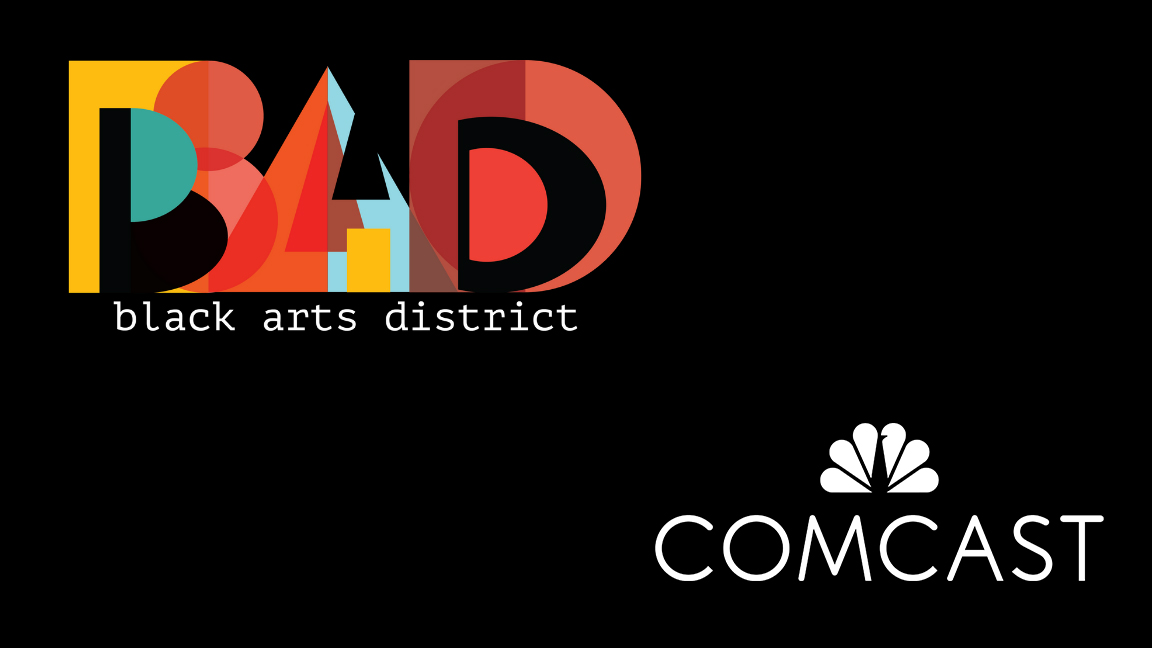Baltimore Black Artist Fair: Perspectives from its Founder, Lady Brion

Comcast is proud to present the Black Artist Fair, in partnership with the Pennsylvania Avenue Black Arts and Entertainment District. From April 30 – May 2, 2021 this free, educational and interactive event is designed to connect Black creatives from the Greater Baltimore Area to resources and services to further enhance their crafts and careers. Over the course of a weekend, participants will be invited to explore professional and creative workshops, consultations, panel discussions and keynotes speakers.
We are excited to kick off the events early here on our blog with a special Q&A with Lady Brion, founder and Executive Director of the Pennsylvania Avenue Black Arts & Entertainment District:
What inspires you most about our Baltimore City community?
For me that answer is always the people themselves. Baltimore is such a resilient city. The people are interesting, the city is super creative and the art I see produced here is inspiring. So many talented, innovative and creative people. I really love the energy – a lot of energy.
How important is it for people to get involved in initiatives such as this Black Artist Fair? And what difference can it make?
We see it as our role to support and promote Black creatives including offering opportunities for training. Often Black creatives have less opportunities to develop – it starts in K-12 and continues into their professional careers. The Baltimore Black Artist Fair provides opportunities for growth while also allowing us to have conversations with the city, philanthropic community and others to move Baltimore to a place of more cultural equity. Our event enables us to move a broader conversation forward about how we support Black creatives in Baltimore City.
With regard to how artists can benefit, there are so many ways:
- Meeting industry experts – we have all sorts of panels and workshops where they can meet experts in their industry and ask questions.
- Taking master classes with artists and entertainers in their industry and learning the tricks of those trades.
- Free photo shoots – a way for burgeoning artists or those who have been artists for years who need professional head shots.
- Networking – meeting new people outside of the experts can’t be overlooked, and is a key part of the event.
- Resource hub – this is designed to connect creatives to different kinds of resources – lawyers or finance and tax specialists, for example. Unfortunately, creatives are often missed and overlooked here and as they’re becoming professionals, they’re able to do it in the right way.
- Contracting artists ourselves – this is an added internal bonus for us, but we hired a number of artists, entertainers and creatives to put on the event itself in a number of different capacities. So, we are intentional about making sure we are putting money in the pockets of artists, as well.
What advice would you give to BIPOC (Black, Indigenous, and People of Color) small business owners who are just getting started?
First, I would say plan twice as much for your success as you plan for your failure. Too often, we talk ourselves out of our success.
I would also say, don’t be afraid to open or establish businesses in Black communities where you’re needed the most. They need you. We need you. Open your shiny new businesses in the places where you’re needed the most.
Third, I would say BIPOC small business owners should seek to identify business practices that operate outside of the standard Euro-centric models – this will allow them to stand out and build blueprints for future BIPOC enterprises so that they can exist as a model blazing new paths forward.
Also, don’t cut corners – always put your best foot forward. Dot every “I”, cross every “T” because we’re under a lot more scrutiny and don’t have the luxury of being anything other than excellent.
And last but not least, make it your business practice to invest back in the communities that have supported you. If you’re a BIPOC company, it should be a part of your structure to give back.
How can companies, like Comcast, continue to help local communities in their efforts around DE&I?
One thing is monetary support will never hurt. In addition, organizations with large platforms should continue to do the work to share BIPOC narratives and increase our representation in the larger landscape – such as providing access and platforms for people who are marginalized and lack access.
Or perhaps provide pipelines to build individuals and companies up – designed to create autonomous and empowered individuals who can be the best versions of themselves.
I’ll say two more things and this may be a bit controversial but when we talk about large institutions in a world that’s very anti-black and oppressive, if we’re talking about DE&I, institutions like Comcast need to be willing to wield its power towards a better tomorrow. Sometimes that will be uncomfortable but if you’re taking it seriously, that’s what it will look like.
And lastly, checking your own institutional racism and biased practices whether in hiring, programming, content, etc. – how do you on a regular basis check your own institutional racism that will show up in your policies and practices. That’s uncomfortable and hard work that needs to happen in big organizations.
If someone could only take one thing away from the Black Artist Fair, what would you want it to be?
I would want the creatives who attend our fair to have renewed commitment to themselves. And the reason why I say that is because for a lot of creatives and artists, COVID has dwindled their creative flame. For the Black Artist Fair and us as an organization, we want artists to be re-ignited, re-invigorated and re-energized to continue to strive towards their highest creative potential.
If you, or someone you know, have interest in joining in on the conversations, please register here: https://www.blackartsdistrict.org/events.